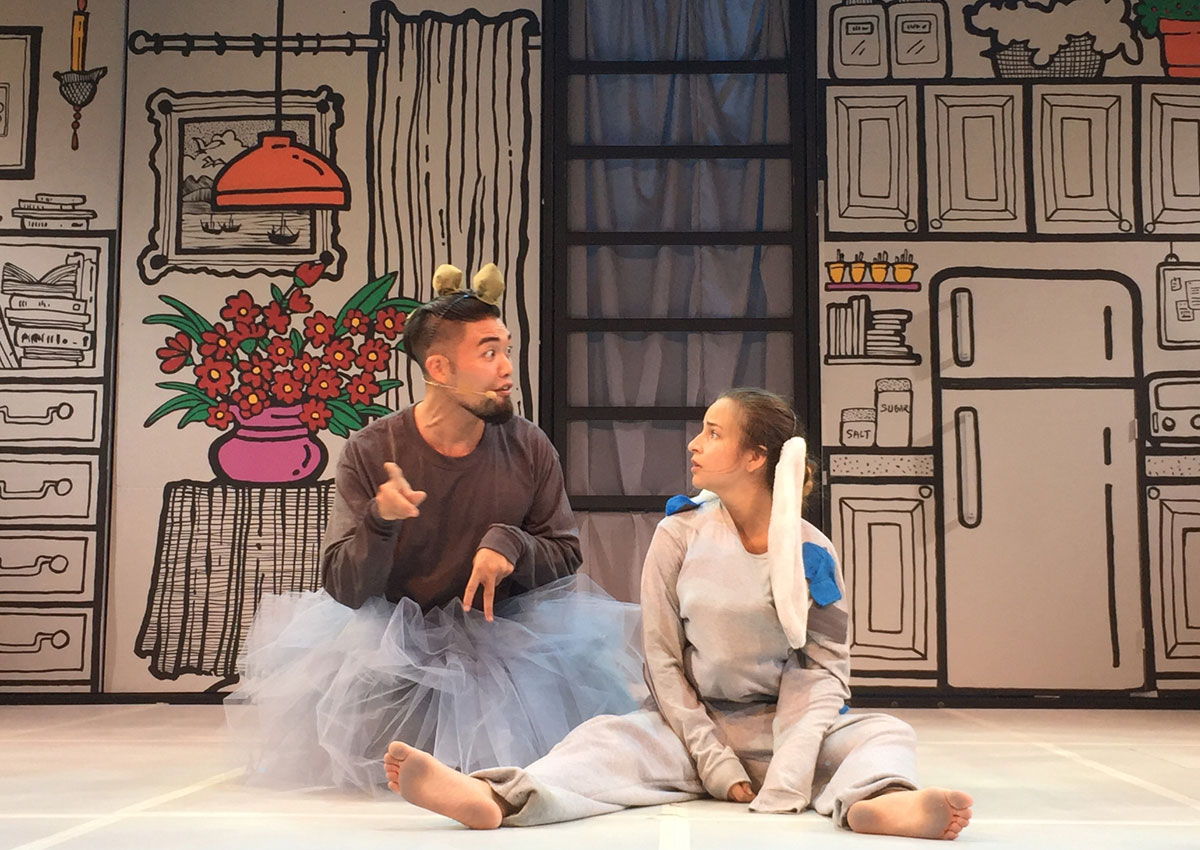The Esplanade is rolling out the red carpet for children with special needs by crafting a performance that caters to them.
The show will be modified to have no sudden or loud sounds that could shock the children. The theatre will also be more brightly lit.
House rules will also be relaxed so that if a child feels uncomfortable and needs to leave, he can easily move around, exit the theatre and go to a quiet room with toys.
Children with autism have difficulty processing sights and sounds, and can be hypersensitive to such stimuli.
The special show for them is Bunny Finds The Right Stuff, adapted from a book of the same title by award-winning local author Emily Lim. It will be held next Monday, at 9.30am and 11am, and is recommended for two- to four-year-olds. A ticket costs $18.
The Esplanade producer Luanne Poh told The Straits Times: “Many often perceive the theatre to be a space that needs to be quiet and full of ‘house rules’, and thus, not conducive for children with special needs.
“By introducing sensory-friendly performances, we hope to open more doors for caregivers of children with special needs, and the aim is to create a friendly and welcoming environment for this community to come into the theatre.”
There have been other efforts to offer an environment where anyone, with special needs or not, can enjoy the arts, she said.
All performances in the Playtime! series, for children aged two to four, feature catchy tunes that children can dance to. Some props are also tactile in nature.
Experts in the disability sector welcomed the Esplanade’s initiative to have sensory-friendly performances, and called for greater public understanding of the challenges faced by children with special needs.
Ms Stephenie Khoo, deputy executive director of Autism Resource Centre (Singapore), said: “Sensory-friendly performances create an opportunity for children with sensory support needs to be included in activities that they otherwise will not be able to take part in.”
The Esplanade also met therapists, teachers and parents of children with autism to get feedback and better understand how to help children with special needs.
Design consultant Phoebe Lim, who has a teenage son with autism and attended one of the meetings, said: “Don’t judge the success of the performance by whether the kids appear to enjoy it.
“For us parents, teachers and therapists, it’s already a success that the Esplanade is allocating a performance for children with special needs.”
Mr Tim Oei, chief executive of non-profit organisation AWWA, which runs a pre-school designed for children with special needs, said audience members sometimes think children are misbehaving when they may actually be confused or shocked by bright lights and loud sounds.
He said: “As a result, people make attempts to shush the child with special needs, which only adds to the problem, or complain to theatre staff.
“Often, parents or caregivers of children with special needs leave the theatre in embarrassment, before the movie or performance ends.”
Getting the show right
LIGHTS
There will be no total blackouts during the show and house lights will remain dim, as people with autism tend to be uncomfortable with being in the dark. They rely heavily on visual information to know where they are.
SOUND
Loud sound effects have been toned down as these can cause distress to people with autism.
PREDICTABILITY
A pre-visit guide has been made available online for parents and teachers to download. It will give the children information on what to expect when they arrive at the Esplanade and throughout the show. Children with autism may have some anxiety about visiting new and unfamiliar places. The guide helps reduce children’s anxiety when they arrive at the Esplanade.
SPECIAL EFFECTS
A bubble effect is used on stage during the show. Experts advised that the bubbles be introduced at the audience level instead. Children with autism may be impulsive and rush towards the stage when they see bubbles there, but this is less likely to happen if bubbles are used at the audience level.
STAFFING SUPPORT
There will be staff from the Esplanade to help support the teachers, and additional health and safety precautions.
VISUAL BOUNDARIES
There will be prominent, coloured visual boundaries to show children where they can and cannot go. Children with autism respond best to clear visual boundaries rather than auditory instructions, like “Don’t go on the stage.”
goyshiyi@sph.com.sg

This article was first published on March 5, 2016.
Get a copy of The Straits Times or go to straitstimes.com for more stories.






